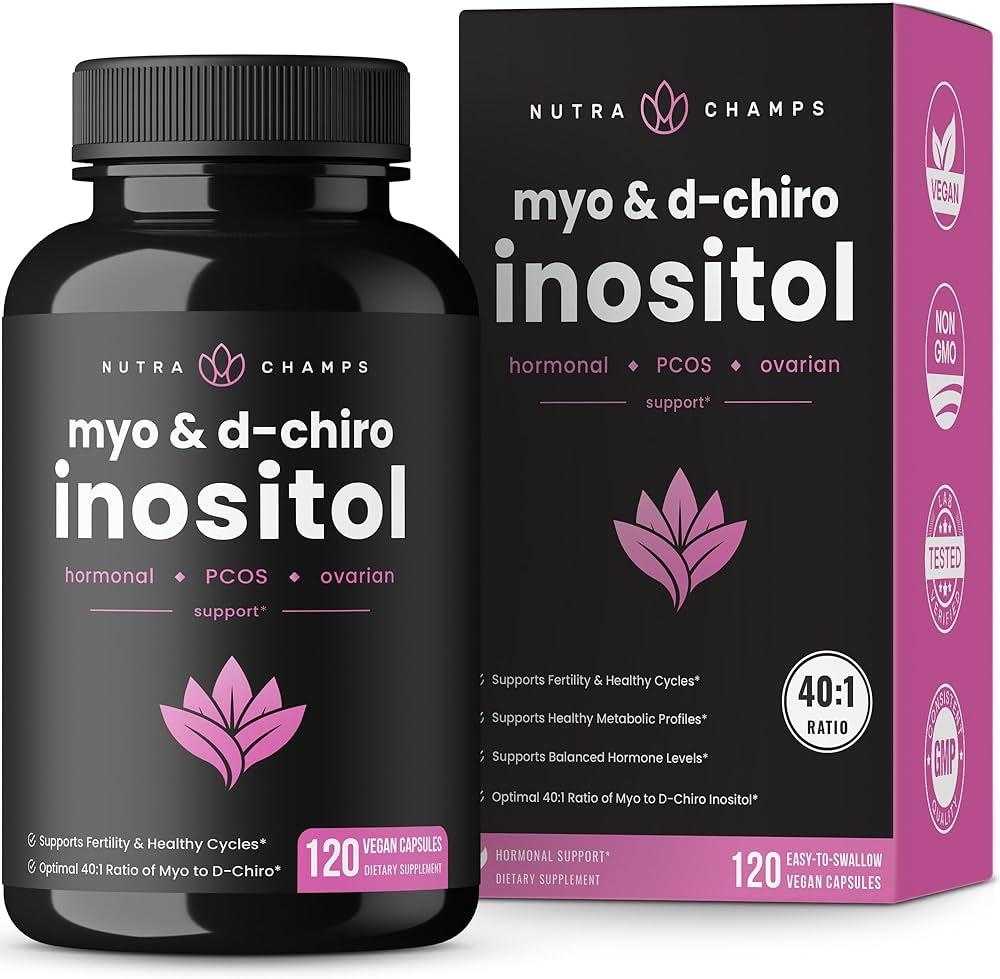Polycystic ovary syndrome (PCOS) affects millions of women worldwide, often weaving a complex tapestry of hormonal imbalances and metabolic challenges that can led to a range of health issues. From weight gain and irregular cycles to insulin resistance and fertility concerns, the symptoms can be as diverse as they are daunting. As the search for effective management strategies continues, many women are turning to supplements as a potential ally in their journey towards wellness. In this article, we will delve into the best supplements for PCOS, exploring their roles in hormonal balance, metabolic health, and overall well-being. With a blend of scientific insight and practical guidance, we aim to empower you with the knowledge needed to make informed decisions on your path to managing PCOS effectively.
Understanding PCOS and Its Hormonal Impact
Polycystic Ovary Syndrome (PCOS) is a complex endocrine disorder affecting women of reproductive age, characterized by hormonal imbalance that can lead to a variety of symptoms such as irregular menstrual cycles, weight gain, and increased androgen levels. Understanding the hormonal intricacies of PCOS is crucial for effective management. women with PCOS often experiance insulin resistance,wich further intensifies the hormonal imbalance. This disruption can lead to excess production of androgens such as testosterone, resulting in symptoms like acne, hirsutism, and thinning hair. Ultimately, addressing these hormonal fluctuations requires a multifaceted approach, combining dietary changes, lifestyle modifications, and supplementation.
To effectively manage PCOS, certain supplements have shown promise in restoring hormonal balance and improving metabolic health. Research suggests that supplements such as inositol, vitamin D, and omega-3 fatty acids can be beneficial. These supplements not only help regulate menstrual cycles but also enhance insulin sensitivity, thus improving metabolic outcomes. Below is a concise overview of some beneficial supplements:
| Supplement | Benefits |
|---|---|
| Inositol | Improves insulin sensitivity and ovarian function |
| Vitamin D | Supports hormonal balance and may reduce inflammation |
| Omega-3 Fatty Acids | Helps reduce inflammation and improve metabolic features |
| Chromium | Aids in glucose metabolism and insulin sensitivity |

Key Nutrients for Balancing Hormones in PCOS
Women with PCOS often face hormonal imbalances that can affect their overall health and well-being. Incorporating essential nutrients into the diet can play a pivotal role in managing these imbalances. Key nutrients like Omega-3 fatty acids, vitamin D, and magnesium are particularly beneficial. Omega-3 fatty acids help reduce inflammation, which is critical for those with PCOS, while vitamin D supports insulin sensitivity and hormonal balance. Additionally, magnesium can aid in regulating blood sugar levels, further mitigating the complications associated with this condition.
Moreover, certain minerals and vitamins support the synthesis of hormones and improve metabolic health. Consider including the following in your supplement routine:
- Chromium: Enhances insulin sensitivity and glucose metabolism.
- B vitamins: Vital for energy metabolism and hormonal regulation.
- Zinc: Supports ovarian function and regulates menstrual cycles.
| Nutrient | Benefit |
|---|---|
| Omega-3 Fatty Acids | reduces inflammation and improves insulin sensitivity |
| Vitamin D | Supports hormonal balance |
| Magnesium | Regulates blood sugar levels |

Top Supplements for Enhancing Metabolic Health
When it comes to improving metabolic health,several supplements have gained attention for their potential benefits,especially for those managing conditions like PCOS. Omega-3 fatty acids are renowned for their anti-inflammatory properties, which can definitely help in reducing insulin resistance—a common issue in women with PCOS. Incorporating Magnesium is another effective strategy,as it supports blood sugar control and can alleviate symptoms such as cramps and mood swings. Additionally, Vitamin D plays a critical role in hormonal balance and can enhance insulin sensitivity, making it a vital nutrient for metabolic health.
Moreover, natural herbal supplements like Cinnamon and Berberine have been shown to improve metabolic markers and promote weight loss.Cinnamon can enhance insulin sensitivity and regulate menstrual cycles through its effects on blood sugar levels. Conversely, Berberine, a compound found in several plants, is emerging as a powerful supplement that targets insulin metabolism and reduces overall fat accumulation. With a combination of these supplements, individuals can gain a holistic approach to managing their metabolic health and hormonal balance.

Integrating Supplements into a Holistic Lifestyle Approach
Integrating supplements into a holistic lifestyle involves a thoughtful combination of nourishment, mindfulness, and wellness practices. This approach recognizes that managing conditions like PCOS transcends mere supplementation; it harmonizes diet,exercise,sleep,and stress management. Incorporating specific supplements can enhance metabolic health and balance hormones, but the key lies in their synergistic effect with other lifestyle changes.for instance, pairing adaptogenic herbs like ashwagandha with nutrient-rich foods can foster resilience against stress, a common trigger for hormonal imbalances.
When selecting supplements, consider prioritizing those that target both hormonal balance and metabolic support. Here’s a summary of beneficial supplements:
| Supplement | Benefit |
|---|---|
| Inositol | Improves insulin sensitivity and ovulatory function |
| D-Chiro Inositol | Supports ovarian function and hormonal regulation |
| Omega-3 Fatty Acids | Reduces inflammation and enhances metabolic health |
| Vitamin D | Promotes insulin sensitivity and hormonal balance |
In this holistic framework, it’s essential to monitor how these supplements interact with daily routines. Emphasizing whole foods,physical activity,and recovery practices can amplify the positive effects of supplementation,leading to a more lasting approach to managing PCOS. By fostering a balanced environment both internally and externally, individuals can navigate their health journey with greater confidence and efficacy.
Closing remarks
As we conclude our exploration of the best supplements for managing Polycystic Ovary Syndrome (PCOS), it’s vital to remember that each individual’s journey is unique. While supplements can play a crucial role in balancing hormones and enhancing metabolic health, they are most effective when integrated into a comprehensive approach that includes a balanced diet, regular exercise, and lifestyle modifications. Always consult with a healthcare professional before starting any new regimen, ensuring that your choices align with your specific health needs. With the right support and resources, you can take proactive steps toward managing PCOS, empowering yourself on the path to better health and well-being. Embrace the journey and take charge of your health — every step counts toward a brighter future.





